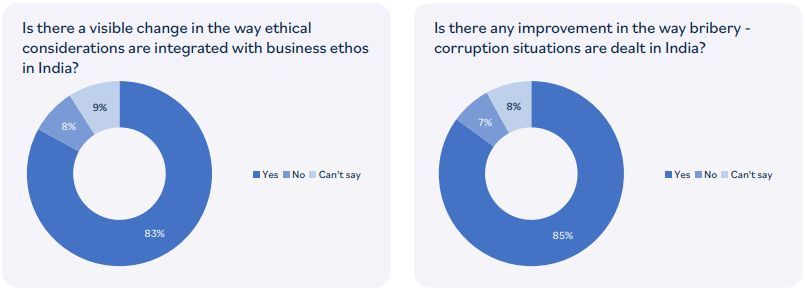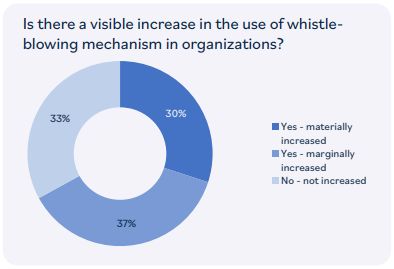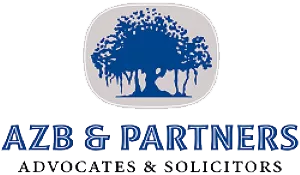Foreword
The business environment and ecosystem in India has undergone a metamorphosis over the last decade on several fronts. One reason is the fact that the detection and enforcement surrounding white-collar crimes like corporate fraud has undergone a sea change. Along with the focus on ESG and clean business, and gradual change in societal attitudes, the focus on "doing business the right way" and "ethics & compliance" has never been higher.
A reputation for legal and fair business (and the effort put in by organisations to maintain the systems and processes to enhance the same) now has tangible and measurable benefits in terms of better valuations, availability of a deeper pool of external debt and equity capital at more favourable terms and of quality employees to run and grow the business. Additionally, it also has intangible (but equally important) benefits in terms of goodwill from stakeholders including customers and government authorities, leading to long-term trust being created in the organization, its brand and its management.
In this era, it has become important for India Inc. to ensure that they are not only doing the right thing but are also seen to be doing the right thing – which includes not just safeguarding company interests by putting in place requisite preventive measures and policies, but also appropriately and fairly dealing with and remediating corporate frauds and other white-collar crimes that arise. This paper examines the responses provided by respondents, which cut across a cross-section of stakeholders in/working with India Inc. on twelve themes concerning white-collar crimes on several related but diverse matters ranging from cultural aspects/business ethos and being part of the ESG agenda, changes in laws and increased enforcement, impact on internal stakeholders (board and management) and external stakeholders (auditors), among others. The findings of this survey indicate that while some aspects may take time, the journey towards a cleaner, ethical business environment with zero tolerance towards corporate frauds and other white-collar crimes like bribery & corruption is truly on!
We hope that this paper serves as an interesting and insightful study. Your comments and observations are welcome - please send them to white-collarcrimesurvey@azbpartners.com
Zia J. Mody
Co-Founder and Managing Partner
AZB & Partners
Executive Summary
Set out below are some key findings from the twelve themes covered in the survey:
- 83% of the respondents have witnessed an increased
focus on ethical considerations in the way business is
conducted in India. 61% of the respondents believe that
with the multiplying importance of ESG, Indian companies
are adopting to the change of "doing the right thing" and
"doing business in an ethical and compliant manner".
Over 60% of the respondents believe that management and
directors of companies have become more conscious about
ensuring compliance and ethical way of doing business.
- Amendments to India's anti-corruption and anti-bribery
legislations have also contributed towards tackling the issues of
bribery, corruption and other ethical wrongdoings and encouraging
Indian companies to be more conscious and transparent in their
business. As per 74% of the respondents, adoption of
whistle-blowing mechanisms by the companies has helped in detection
of ethical issues within organizations.
- Not surprisingly, according to our respondents, complex and
layered shareholdings in companies and related party transactions
are the most susceptible areas of corporate fraud and corruption,
and want statutory auditors to play a more proactive role (and
believe further disclosures are required by auditors).
- Over 60% of the respondents believe that further
regulatory enforcement actions are needed to curb the menace of
fraud and corruption in India - these probably arise from
delays in judicial process, legislative loopholes and lack of
comprehensive prosecution mechanism, and require a holistic review
of the prosecution and settlement system. 70% of the
respondents stated that while the investigative agencies are
well-equipped to handle complex financial crimes, there is still
scope for improvement.
- Over 70% of the respondents state that social media and
mainstream media have significant power to influence investigation
on companies - however, over 60% of our respondents believe that
Indian companies are reactive in these matters, and that
they do not have a clear social media outreach strategy to deal
with situations of regulatory investigations and allegations made
in public domain.
- Further, over 70% of the respondents feel that Indian companies do not have sufficient capabilities to undertake internal investigations, and that they are not comparable with global best practices in conducting internal investigations. This number is likely to reduce with time, as companies continue to put in place and strengthen their systems and processes.
Change in Business Ethos
India has witnessed a significant transformation in its business ethos in the last decade, driven by multiple factors including the need to adapt to the changing regulatory landscape and the growing expectations of various stakeholders. Increasing instances of whitecollar crimes coming to light have contributed to continuous strengthening of the legal framework, and stakeholders demanding enhanced accountability and action. These factors have also encouraged Indian business to adopt best practices and standards in areas such as corporate governance, risk management and social responsibility, with special emphasis on ethical way of doing business, compliance with anti-bribery and anti-corruption laws, awareness towards fraud prevention, detection, investigation and remediation. This is borne out by our survey results, where 83% of the respondents believe that integration of ethical considerations with business practices have led to a change in the way business is conducted in India.
Today, anti-bribery and anti-corruption policies and procedures are an integral part of doing business. Companies are expected to put in place robust internal controls, and auditors are expected to test the effectiveness of these controls while acting as an external watchdog to monitor the affairs of the company. There are also enhanced disclosure obligations on internal and external stakeholders in relation to corporate frauds, including bribery and corruption. No wonder that 85% of the respondents in our survey stated that they have observed a cultural change in India when it comes to dealing with situations involving bribery and corruption, with such change being visible across multinational corporations, professionally managed and promoter managed Indian companies alike.

Indian business ethos has evolved and matured - doing business in an ethical manner and addressing bribery and corruption risks, is fast becoming an integral part of the DNA of India Inc. This structural change augurs well, increasing India's attractiveness as a preferred investment destination.
- Deepak Parekh
Chairman - Housing Development Finance Corporation Limited
Whistle-Blowing Mechanism - Importance & Use
The importance of a robust whistle-blowing mechanism, including safeguards relating to privacy and non-retaliation (while putting in place mechanism to avoid misuse) is now largely an agreed position among corporate India, and its importance has also been recognized by regulatory authorities (who now want auditors to report on having considered whistle-blower complaints as a part of their auditor's report). In fact, according to our survey, 74% of the respondents agree that use of whistle-blowing mechanism is a significant driver in unearthing ethical issues within organizations.
The efforts that have been taken in relation to the establishment of whistle-blowing mechanism by corporate India are showing results - 71% of the respondents believe that people are now more open and forthcoming in making complaints and raising red flags on ethical issues, and 43% of the respondents have observed that the increased emphasis on and use of whistle-blowing mechanism in India has led to a decrease in fraudulent activities within organizations to some extent.
Concerns are often raised on whether the whistle-blower complaints received are genuine - in our survey, 38% of the respondents stated that between 50% to 75%, and 21% of the respondents stated that over 75%, of whistle-blower complaints received by their organization are genuine and lead to discovery of unethical practices. In fact, 82% of the respondents stated that their organizations investigate anonymous/ pseudonymous whistle-blower complaints based on merits, which also ties-in to the finding that 69% of the respondents stated that whistle-blowers prefer anonymity even if they don't fear retaliation.

A robust whistle-blowing mechanism is a vital tool for building an ethical and sustainable business which is respected by internal and external stakeholders.
Manjaree Chowdhary - Senior Executive Officer (Legal and Realty Infrastructure) & General Counsel, Maruti Suzuki India Ltd.

Click here to continue reading . . .
Originally published 26 July 2023
The content of this article is intended to provide a general guide to the subject matter. Specialist advice should be sought about your specific circumstances.








